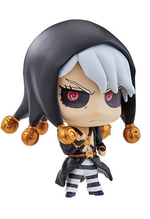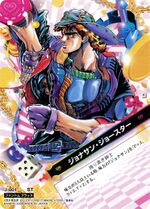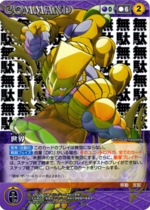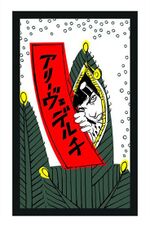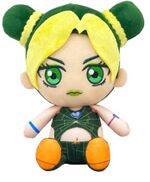Bandai
Bandai Co., Ltd. (株式会社バンダイ, Kabushiki gaisha Bandai) is a Japanese toy manufacturer founded by Naoharu Yamashina as Bandai-Ya (萬代屋) on July 5, 1950. After merging with the video game and entertainment company Namco in 2005, it became a subsidiary of Bandai Namco Holdings.
Among its subsidiaries are Banpresto and MegaHouse.
History
Bandai was founded by Naoharu Yamashina on July 5, 1950, as Bandai-Ya (萬代屋) in Taitō, Tokyo, when it spun off from his family's textile business. Their first original toy, Rhythm Ball, a ball with bells inside, was introduced in September of the same year. In March 1951, Bandai began exporting toys to foreign markets, becoming one of the earliest Japanese companies to do so. In 1955, the company became the first in the toy industry to have a quality assurance system, with the 1956 Toyopet Crown model car being the first toy approved. Bandai-Ya was renamed to Bandai in July 1961.
In the 1960s, the company began to expand its overseas operations and opened an office in New York City. Bandai met considerable success when it introduced action figures based on the anime Astro Boy in 1963. The toy line's success prompted the company to move away from manufacturing original toys to making tie-in products as well as funding various television series.
In May 1980, Makoto Yamashina, son of the founder, became the president of Bandai.
Bandai was one of the first third-party developers for the Nintedo Family Computer. In 1986, they released the Power Pad, a floor mat accessory for the Famicom. In February 1989, Bandai acquired arcade game developer Coreland and reorganized it into Banpresto.
In 1988, Bandai launched the first Carddass card vending machines, which were based on the Saint Seiya anime. Many other popular franchises were made into trading cards, including JoJo's Bizarre Adventure, with the Adventure Battle Card, Crusade, and JoJo's Bizarre Hanafuda card games.[1]
In 1996, MegaHouse became a subsidiary of Bandai.
In January 1997, Bandai announced its planned merger with Sega, which would establish a new company named Sega Bandai Ltd. In May, the merger was called off due to growing opposition from Bandai's employees. President Makoto Yamashina took responsibility for its failure and stepped down from his position. Bandai and Sega instead agreed to a business alliance.[2]
In 2005, Bandai merged with Namco, becoming a subsidiary of Bandai Namco Holdings.[3]
JoJo-Related Series
Figures
Card Games
Other
See also
External Links
Official Site: bandai.co.jp
References
- ↑ カードダスドットコム 公式サイト | カードダスとは
- ↑ Grant, Tina (2003). International directory of company histories. Vol. 55
- ↑ 歴史 | バンダイ公式サイト
